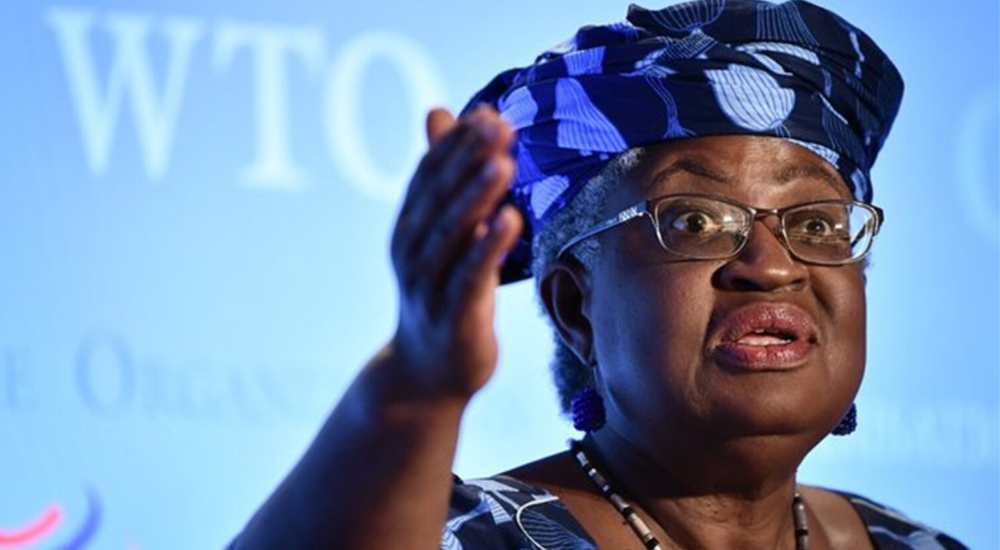African reciprocal tariffs are threatening Africa’s economic future more than ever. When WTO Director General Ngozi Okonjo-Iweala took the stage at the Finance for Development Conference in Seville, her message was clear: Africa cannot afford these burdens. This opening sets the tone for a deep dive into the crisis.
Why African reciprocal tariffs hurt fragile economies
The World Trade Organization’s insistence on balanced trade is colliding with Africa’s fragile economies. According to WTO data, reciprocal tariffs could slash growth forecasts by 0.8%. That might not sound alarming until you realize it translates to millions losing jobs and critical funding for health and education vanishing. Read more insights here.
Among the African nations most impacted by the Trump-era “reciprocal” tariffs are smaller economies such as Lesotho, Madagascar, and notably Mauritius, which faces a 40% tariff on its exports to the US. This places added strain on local industries and jeopardizes efforts to integrate into global markets. For a closer look at how such trade dynamics are reshaping Mauritius’ economic landscape, discover more insights on Mauritius’ trade dynamics here.
Trump’s tariff war still haunts Africa
Donald Trump’s aggressive trade policies introduced tariffs hitting Lesotho (50%), Madagascar (47%), Mauritius (40%) and more. These figures are not just numbers — they represent factories closing and communities collapsing. Even years later, Africa struggles to recover.
African reciprocal tariffs :WTO calls for African reciprocal tariffs exemption
Okonjo-Iweala argued passionately for exempting Africa from these destructive tariffs, saying it’s vital for integrating Africa into global trade. Without this, she warned, Africa would be excluded further, deepening poverty and undermining the Sustainable Development Goals.
African reciprocal tariffs : Billions locked in harmful subsidies
Both the WTO and World Bank estimate nearly $2 trillion is wasted on harmful subsidies. Redirecting just a third of this could close much of Africa’s financing gap. This stark reality shows why ending these subsidies is as critical as tariff reform.
Regional integration: Africa’s powerful hidden weapon
Beyond global reforms, WTO urges African nations to accelerate regional trade deals. Initiatives like AfCFTA could boost intra-African trade by over 50%, cushioning shocks from global turbulence and making Africa less dependent on distant markets.</p
African reciprocal tariffs: Trade finance gaps threaten local businesses
Across Africa, small and medium enterprises struggle to secure affordable trade financing. This problem is magnified by African reciprocal tariffs, which strain cash flows and force many to cut operations. WTO stresses the urgent need to close this financing gap, else even the most promising African startups may fail before they flourish.
African reciprocal tariffs: Global uncertainty adds more fuel to the fire
New trade tensions between the US, EU, and emerging markets further unsettle Africa. With African reciprocal tariffs already hitting hard, businesses face compounded uncertainty. This drives away foreign direct investment, slows new projects, and delays critical infrastructure upgrades needed for growth.
How Africa can turn the tide
The WTO director general proposed a roadmap: exempt Africa from reciprocal tariffs, phase out harmful subsidies, and double down on regional integration. If executed, this could spark a renaissance in African trade, open new global markets, and deliver millions of jobs. The question is: will global leaders act in time?
Powerful conclusion: Africa at a crossroads
African reciprocal tariffs put the continent’s future at risk. But with bold policy shifts, Africa can transform these threats into opportunities. By embracing WTO reforms, investing in digital and sustainable trade, and unlocking local financing, Africa holds the key to rewriting its trade story. This isn’t just about economics—it’s about hope, dignity, and a new chapter for over a billion people.
Source: African Business




